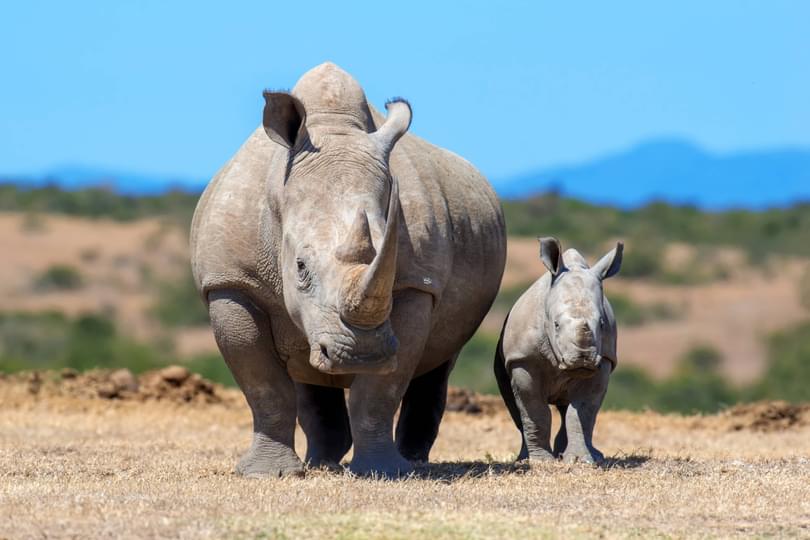
Researchers from the Oxford Martin Programme on Wildlife Trade, as part of an international team from nine countries, are calling for change to prevent polarisation on trade regulations for iconic species from causing irreparable damage to CITES, the Convention on International Trade in Endangered Species of Wild Fauna and Flora.
The analysis, published in Conservation Letters, found concerning commonalities between the threat from ten Southern African Development Community (SADC) countries to withdraw from the Convention due to disagreements over regulation of trade in elephant ivory and rhino horn and Japan’s withdrawal from the International Whaling Commission in 2019. Withdrawals from multilateral environmental agreements by countries substantially weaken the integrity, credibility, and stature of these institutions.
International agreements like CITES play a critical role in facilitating cooperation and resolving disagreements between countries in order to protect biodiversity
Wildlife trade is critical to the livelihoods, income, food security, cultural traditions and wellbeing of billions of people around the world. CITES plays a central role in ensuring that international trade in nearly 41,000 species is legal and sustainable. It provides a framework for global governance by bringing together 184 countries and the EU to establish trade controls for species and set policy directions.
Under this system, commercial international trade in elephant ivory and rhino horn is currently banned, but some range states have pushed for this trade to be legalized and regulated. Although these countries are home to the vast majority of the world’s African elephant and white rhino and black rhino populations, proposals to legalise this trade over at least the last decade have been rejected.
Commonalities between SADC countries threatening to withdraw from CITES and Japan leaving the IWC include:
- the changing organizational ethos of the institutions from their founding missions,
- polarised positions over trade in certain charismatic species has created conflicting sides,
- non-state actors like environmental and animal rights groups have gained sufficient influence and can trump scientific guidance in proceedings, and
- dissenting nations have lost the ability to meaningfully influence trade policy for their sovereign natural resources, leading to frustration and disenfranchisement.
Policy decisions at CITES and the IWC are made democratically, with countries having one equal vote on decisions regardless of their responsibility for conserving particular species. For elephants and rhinos, range states with a desire to utilize and trade their natural resources have found themselves in voting minorities and unable to meaningfully influence international trade policy.
Dr Dan Challender, Senior Research Fellow with the Wildlife Trade programme and the University’s Department of Biology, and co-author of the study, explained:
“At CITES meetings proposals on elephants and rhinos can use up lots of time with countries doubling down on fundamentally different positions, meaning there is less time to discuss other important matters. Our proposed reforms provide ways to improve decision-making in CITES, which could lead to more effective outcomes for wildlife and people.”
With CITES turning 50 this year, the researchers believe this to be the right moment to reflect and assess whether structural reforms are needed. Improving the robustness of the convention will help ensure the effectiveness of wildlife trade governance in the long-term.
Dr Hubert Cheung, Assistant Professor at Ritsumeikan Asia Pacific University in Beppu, Japan, who led the study, said:
“International cooperation is crucial for biodiversity conservation. Japan withdrawing from the IWC very recently set a precedent for other countries to withdraw from global environmental treaties because of polarisation over the use and trade of certain wildlife species. It is important to draw lessons from Japan’s withdrawal from the IWC to strengthen wildlife trade governance in CITES. International agreements like CITES play a critical role in facilitating cooperation and resolving disagreements between countries in order to protect biodiversity.”
The researchers detailed three main streams of reform to help protect the integrity of CITES while being flexible to deliver sustainable conservation outcomes, namely:
- increase the acceptability of reservations and restore decidability through voting reforms,
- enable social equity by adopting formal processes that explicitly incorporate stakeholder values and circumstances, and
- embrace inclusive decision-making.
Dr Amy Hinsley, Co-Director and Senior Research Fellow of the Oxford Martin Programme on Wildlife Trade, who co-authored the study, added:
“After half a century, CITES still plays a critical role in regulating wildlife trade, but growing polarisation over iconic species risks weakening its legitimacy and impact. Embracing reform now is essential to ensure the Convention can meet the needs of both wildlife and people in the next 50 years.”